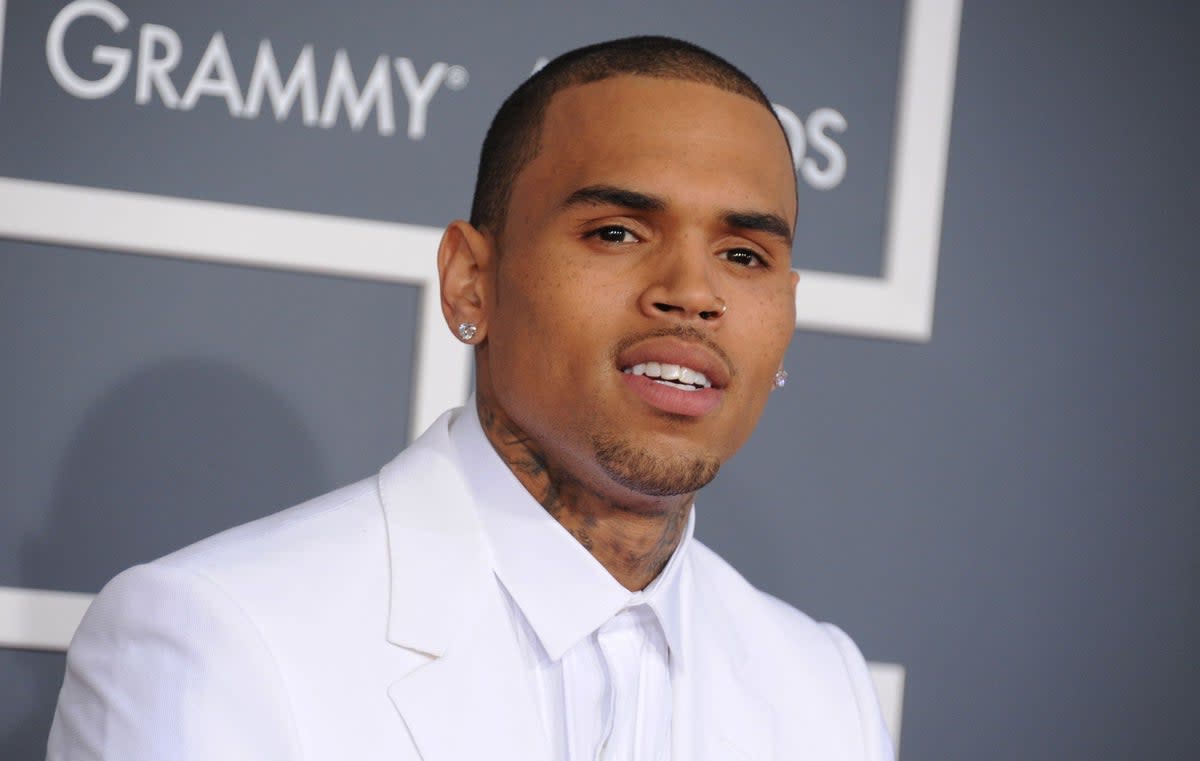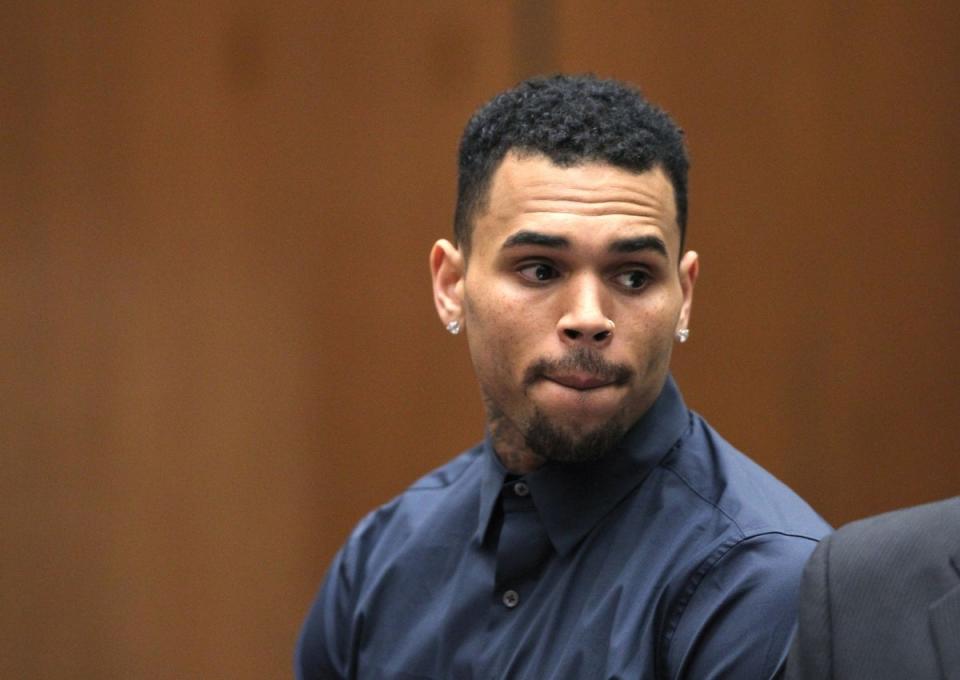How on earth is Chris Brown still successfully releasing music?

On November 11, Chris Brown released his eleventh studio album 11:11, a numerology-inspired release named after a time of supposed spiritual significance and transition, which came along with feature spots from Future, Fridayy and Byron Messia, as well as Afrobeats stars Davido and Lojay.
It follows on from the wildly popular Breezy, which earned Brown his twentieth Grammy nomination to date (he won Best Album for F.A.M.E in 2012) and helped him to overtake Elvis Presley for total number of gold-certified records. Among that record's many guest stars: Lil Wayne, Anderson .Paak, H.E.R, Jack Harlow, Wizkid, and Tory Lanez.
One of the world’s biggest selling artists of all time, Brown is the third biggest R&B singer of the past decade behind Rihanna and Drake. Fans flocked to his four night residency at The O2 en masse last year, while on Spotify, he has 46.5 million monthly listeners.
In brief: an enormously popular and successful artist who has been decorated with hundreds of awards over the course of his 21 year career, and fattened the pockets of many a label exec or producer in the process. And yet, all of this acclaim and continued financial backing comes despite a well-documented history of violence against women, and a lengthy string of alarming allegations, charges, arrests, legal issues, and probation violations over the course of the last decade.
In 2009, Brown attacked his former girlfriend Rihanna. The pair had been making their way to that year’s Grammy awards when Brown violently assaulted her in their car; the details of the incident as it unfolded are truly harrowing. After turning himself in to police, Brown pleaded guilty to one count of felony assault, and served six months of community labour, and five years of supervised probation. He was also given a restraining order, and was ordered to attend domestic violence counselling.
In the years following his conviction, he reportedly hired a consultant to help him boost his philanthropic activities, partnered with a number of domestic abuse organisations and even launched his own charitable initiative, Symphonic Love – though, as reported by Rolling Stone, the organisation’s website is no longer active.
Often, the horrifying incident with Rihanna is presented as a singular mistake and a terrible, but momentary, moral lapse by Brown and those who support him. This paints a picture that is entirely detached from reality.
Don’t just take my word for it. The trail of other convictions, charges and out of court settlements are plain to see. In 2017, he pleaded guilty to misdemeanor assault after hitting a fan in DC. In 2018, a false imprisonment and sexual assault lawsuit against Brown was settled out of court. His ex-girlfriend Karrueche Tran won a five-year restraining order against him after she alleged that Brown pushed her down the stairs and threatened to kill her.
Throughout these many scandals, a well-oiled PR machine has been working in overdrive to engineer a redemption arc; though even they find it impossible to contain Brown’s frequent social media outbursts against his many detractors. Even more deplorable is the sheer number of fellow musicians and other industry figures who evidently think that propping up, enabling, supporting, or otherwise sticking up for Brown is a decent use of their time.
After she was widely booed for accepting an American Music Award on Brown’s behalf last year, Kelly Rowland defended him by calling for forgiveness. “We all need to be forgiven for anything that we could be doing – we all come up short in some sort of way. Grace is real, and we are humans, and everybody deserves grace, period,” she said.
"People deserve to be able to grow and learn and be able to live their life without things hanging over them,” said Jordin Sparks – who collaborated with Brown on the 2008 single No Air. “The people who have overlooked this man's talent because of a mistake he made.. you need to reevaluate!” wrote Bieber.

The legitimacy of cancel culture is the subject of fierce debate, with some fearing a climate where a single misstep or poorly judged remark can be a career-ender. But looking at the continued successes of Brown – a man who apparently hauls in enough cash to make up for all of the nose-holding – I find it hard to believe that this is the case at all.
Though Brown’s career was briefly derailed in 2009 – a handful of radio stations refused to play his music after his guilty plea, while being temporarily banned from countries such as the UK hindered his lucrative touring schedule – it has barely proven an obstacle in the long term.
Throughout the last decade’s multiple allegations of misogyny and violence against Brown, label support for him has never wavered, and in 2019 he inked a fresh deal with RCA. When an order banning Brown from entering the UK eventually lifted, Wireless festival invited him along to headline, and The O2 booked him for four nights running.
Scores of musicians – including Nicki Minaj, Justin Bieber, Drake, Wizkid, and Lil Wayne – have gladly lent their name to Chris Brown collaborations. Disturbingly, some figures in the music industry have alleged that they were pushed into recording with him.
The American artist Tinashe claims that she never wanted to record the song Player with Chris Brown, and also claims that Let's Be Real Now, her collaboration with R Kelly – who was also signed to her former label RCA at the time – came about in a similar manner. Kelly, a convicted child sex offender, was eventually dropped following the airing of the documentary Surviving R. Kelly, and is currently serving 31 years in prison.
When she was asked if the collaborations were “label-ly” obligations, Tinashe replied: “You think I wanted to [do the collaborations? I literally block out that R. Kelly song from my mind. I forget that that [song] exists. That’s so embarrassing. That is so unreal that I have a song with R. Kelly.
“Especially when it comes to singles, for example, that song with Chris [Brown] was a song that we all wanted to be this big moment…” she continued. “So I feel like in [the label’s] mind, they were like ‘You need the support.’ And [Chris] was like their biggest artist that they had on rhythmic radio at the time.”
In response, Brown commented: “Name [five] Tinashe songs or die… Everybody dead.”
As observed at this year’s House of Commons Misogyny in Music enquiry, the #MeToo movement – which began in 2017, and has since exposed a culture of misogyny and sexual violence, initially in the film industry – has failed to have any substantial impact on the music industry.
And is it really any wonder, when we consider the number of abusers – who have often been found guilty in a court of law – who are continually handed enormous platforms, opportunities and deals without facing any lasting, serious consequences for their actions?
When men like Brown – and he is far from the only one – continue to flourish, even in the face of deeply troubling and repeated allegations, the story it tells about the poisonous, corrosive culture of misogyny dominating music today is depressing in the extreme.
When we see this level of unconditional support, through every increasingly grim twist and turn, it sets a deplorable example for men entering the industry – and the young women trying to carve out a path within it.
The message is clear – if you make enough cash, you’re free to continue, and to hell with it. Money over morals, all the way to the bank: what a sorry state of affairs.


